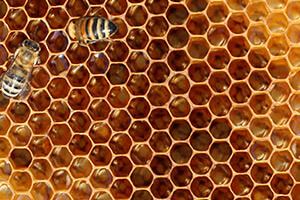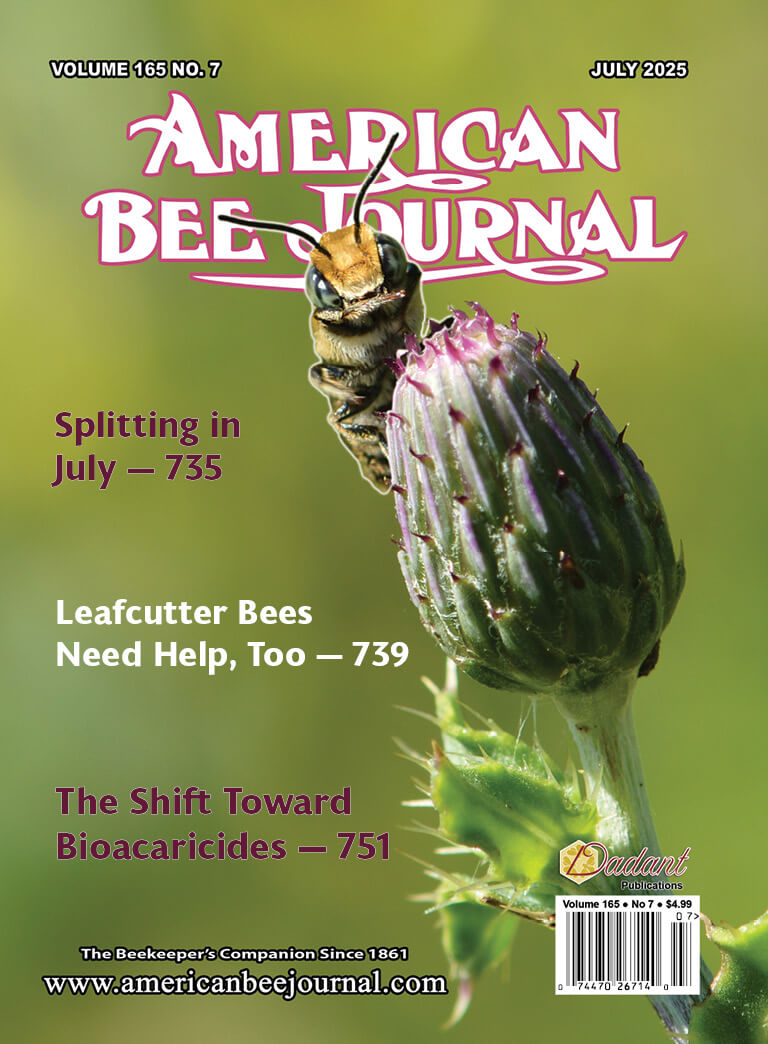
My apologies for skipping a month in this colony microbiota series—too much bee work and too many conferences to attend. But before I return to beebread, I’d like to share the results of a related study of my own.
Probiotics
As we learn more and more about the symbiotic microbial communities that reside in or on the bodies of many organisms (including humans and bees) the more we find how little we know about their contributions to our digestion, health, immunocompetence, and even mood. Scientists have shown that in some cases, that by consuming certain symbiotic bacteria, one may be able to “retune” the gut to a healthier state, or in the case of livestock, to improve health and productivity.[1] Such beneficial microorganisms, which when administered to a person or animal in order to confer a health benefit are called “probiotics.”
Another term that you may hear is “prebiotics.” These are nondigestible food ingredients that promote the growth of the beneficial microorganisms in an animal’s gut.
Application to Beekeeping
As I’ve detailed previously, the honey bee is host to a “core” bacterial community that resides its gut, as well as other bacteria that colonize its hypopharyngeal glands and beebread. These bacteria appear to be involved in digestion[2] and disease resistance[3], and may produce critical nutrients not found in nectar or pollen.[4] Not surprisingly, researchers have proposed that colony health may be improved by probiotic inoculation.[5]
Acroynym-loving scientists have created new terms to address colony “dysbiosis” (microbial imbalance)—Microbial Resource Management (MRM) and Symbiont Resource Management (SRM–defined as “the application of microbial symbionts to manage insect-related problems”[6]). Entrepreneurs of course have seized the opportunity to sell something new to beekeepers, and are currently marketing probiotic products. The question, of course, is whether their claims can be substantiated.[7]
Potential Modes of Action
There are various ways in which probiotic/prebiotic products could potentially improve bee health. What is important to understand is that the microbial community in the gut is continually changing. Each variation in food (e.g., almond pollen vs. dandelion pollen) may introduce or favor one strain of microorganism over another. Add to that the effects of antibiotics, pesticides, and natural antibacterial plant metabolites—any of which may cause dysbiosis (think of your gut after a course of antibiotics).
A different strain of bacteria coming in with nectar or pollen may gain a foothold and outcompete some established members of the gut biota (think of Montezuma’s Revenge). And the short generation time of gut bacteria (15 minutes to hours), plus their ability to swap plasmids of genetic information between species, allows them to continually evolve in their competition for food and habitat in the gut. Metagenomic characterization of the microbial community structure of the bee gut indicates that, despite there being a few core species, it can be rather variable.
That said, the feeding of a prebiotic could potentially favor certain beneficial bacteria. This may especially applicable to the formulation of pollen subs.
Probiotics, on the other hand, consist of living bacteria. One could make the case that they could help to reestablish the core gut community after treatment with antibiotics. However, it appears that the gut biota of commercial bee stocks are already resistant to antibiotics.[8] And a field study did not find any detrimental effect from starting off packages with a dose of multiple antibiotics.[9]
In any case, it is certainly plausible that feeding a probiotic containing the right strains of bacteria could help to bring the hive microbial community into tune.
The Importance of the Right Bacteria
Feeding live bacteria willy nilly to bees may not be the best idea. Even nonpathogenic bacteria may cause a metabolically costly upregulation of their immune response.[10] Bacteria that exhibit a salubrious effect in one species (say humans or livestock) may not be of any benefit to the honey bee. Indeed, introducing the wrong probiotic bacteria can worsen colony health. Most likely, any probiotic for bees should consist of one or more specific bacterial strains originating from the guts of healthy bees.
Practical application: dumping pet probiotics or yogurt into your hives is likely a waste of money.
Have Probiotics Been Shown to Be of Benefit?
Probiotic treatments are offered by the bee supply companies, and a number of beekeepers have experimented with various animal probiotics. Unfortunately, some of the claims for such products may be based more upon wishful thinking than actual scientific testing. Indeed, there is a paucity of studies that have actually demonstrated any beneficial effects from feeding probiotics to honey bees.
Since fumagillin is not allowed to be used for nosema management in Poland, researchers there have run a number of trials of probiotics and prebiotics, in general, finding generic veterinary formulations to be of little or no observable benefit.[11]
When he heard of California beekeepers feeding a pet store probiotic to their bees, Dr. Eric Mussen included it in a recent trial.[12] The result: “This study did not find a beneficial role for the feeding of probiotics to honey bee colonies.”
More Harm than Good?
Feeding the wrong probiotic bacteria to bees can cause more harm than good. Andrearczyk[13] observed greater mortality of caged bees when they were fed an …


